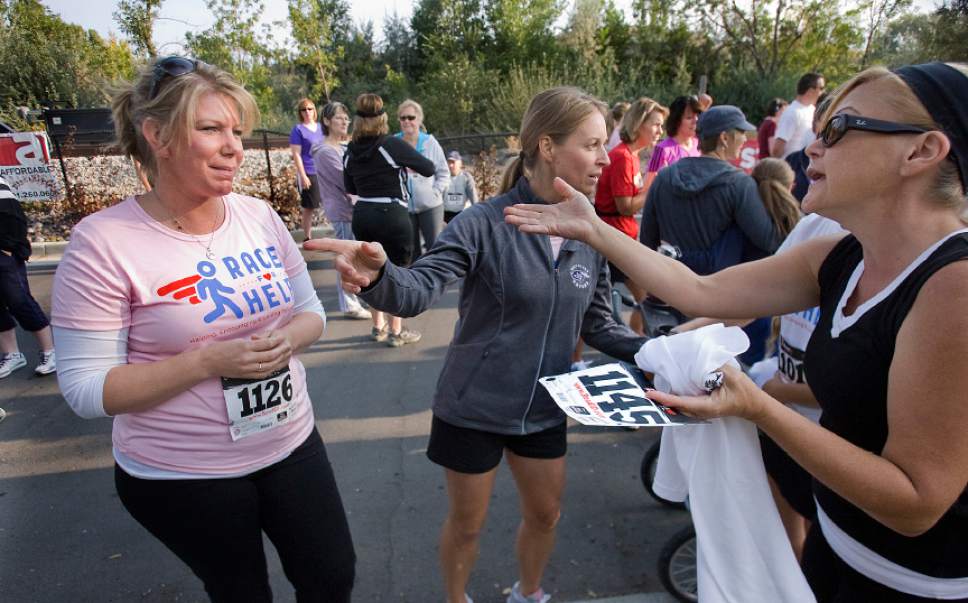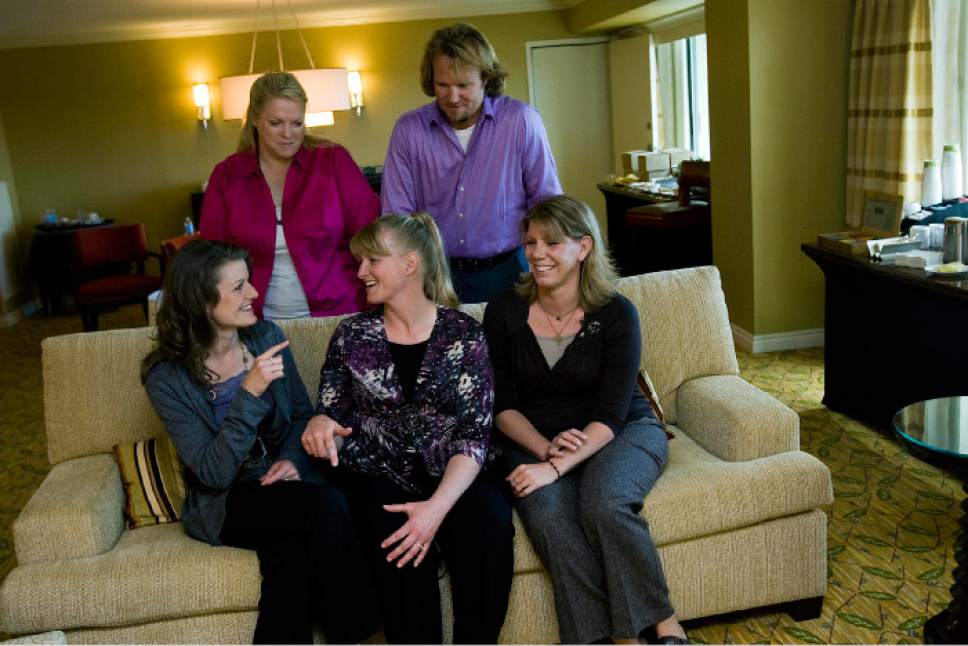This is an archived article that was published on sltrib.com in 2016, and information in the article may be outdated. It is provided only for personal research purposes and may not be reprinted.
The polygamists who starred in the reality television show "Sister Wives" should not have their case reviewed by the U.S. Supreme Court, argues the Utah Attorney General's Office in a brief filed Tuesday.
The filing agrees with the 10th Circuit Court of Appeals ruling from earlier this year — which overturned a lower court decision — in calling the lawsuit moot. In a sign that it is interested in the case, though not a guarantee that it will hear arguments, the U.S. Supreme Court requested a response from the attorney general's office in November.
Dan Burton, a spokesman for the attorney general's office, declined to comment on the posting.
The "Sister Wives" stars — husband Kody Brown and his wives Meri, Janelle, Christine and Robyn — filed an appeal to the 10th Circuit Court ruling in their attempt to have Utah's criminal bigamy statute declared unconstitutional. They also want U.S. District Court Judge Clark Waddoups's December 2013 decision, striking down the polygamy portion of the statute, to stand.
The statute makes it a crime if someone "knowing he has a husband or wife or knowing the other person has a husband or wife ... purports to marry another person or cohabits with another person." The offense is a third-degree felony, punishable by up to five years in prison.
Attempts to reach the Brown family's attorney were not returned Tuesday evening. The Browns followed the Apostolic United Brethren Church.
After "Sister Wives" premiered in 2010, police investigated the family, who were living in Lehi at the time, for a violation of the law. The Utah County Attorney's Office eventually decided not to file charges.
In 2011, after the family moved to Nevada, they filed a lawsuit against Utah Gov. Gary Herbert, the attorney general and Utah County attorney Jeffrey Buhman. The Browns say they were unfairly targeted as polygamists and that others who cohabitate with partners weren't similarly investigated. The governor and attorney general were later dismissed from the lawsuit.
The attorney general's office typically will not prosecute polygamists solely for bigamy, but rather only when the practice is coupled with other potential crimes. The office has, however, discouraged the practice.
Buhman's office did not have a comparable policy at the start of the investigation and he remains a defendant in the lawsuit.
The attorney general's office argues that since the Browns "face no current or continuing threat that [Buhman] will prosecute them" — and the case has surpassed its statute of limitations — it shouldn't be reviewed by the high court. Additionally, the office says a bill proposed for the 2017 Utah Legislature may make a hearing unnecessary.
The legislation, HB 99, would change the language of the bigamy statute to say "marry and cohabitates" instead of "or," meaning voluntary cohabitation would not be prohibited — the basis of the Brown family's appeal.
To pursue a review by the U.S. Supreme Court, the attorney general's office argues, would be "wasting whatever significant time the parties would have by then devoted" to the case, were the bill to pass during the upcoming legislative session.
Polygamy was banned in Utah as a condition to statehood in the 1890s.
Twitter: @CourtneyLTanner





